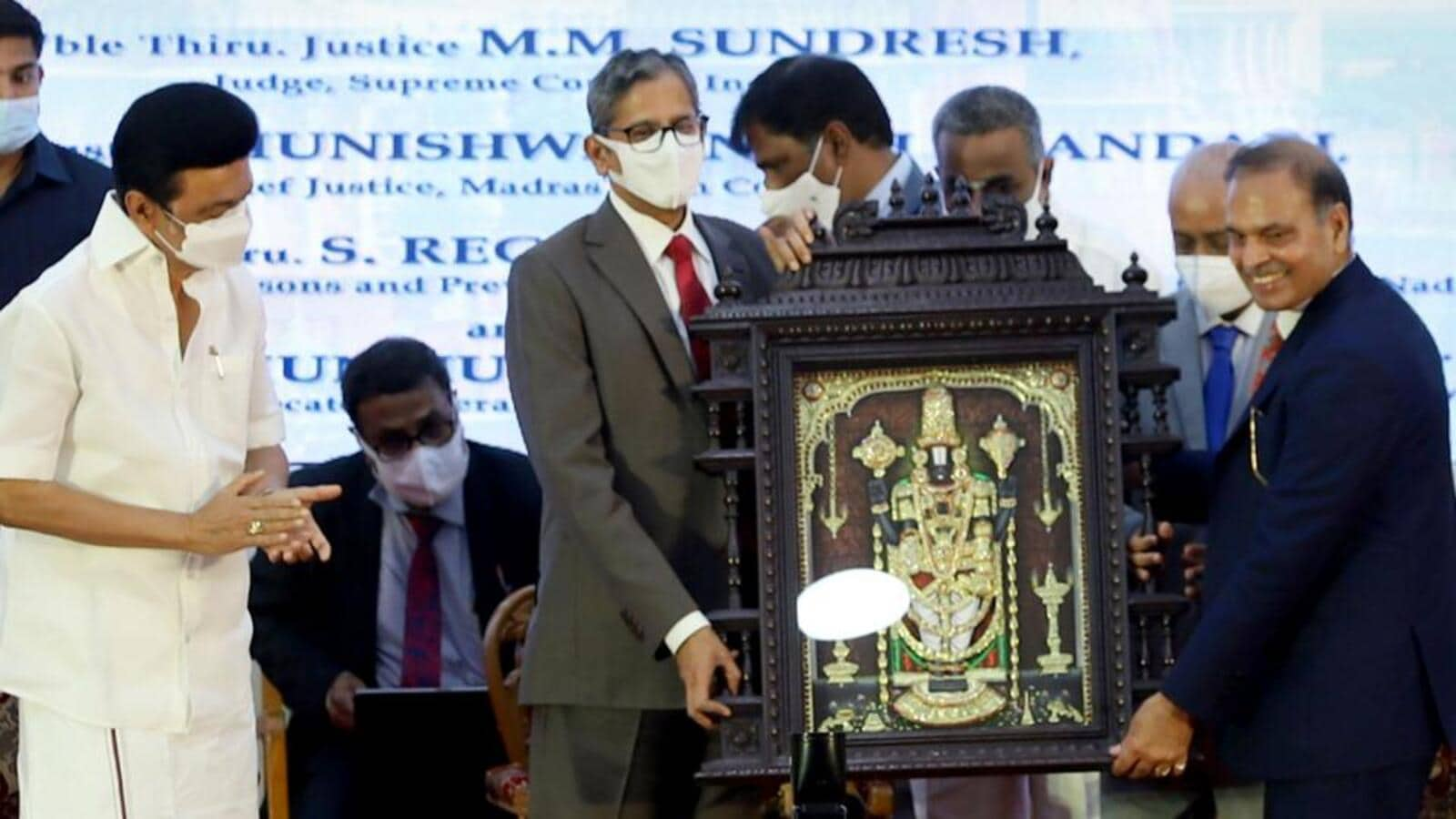[ad_1]
NEW DELHI: The Supreme Court has continued hearing of cases through the virtual mode in the spirit of providing accessibility to lawyers practising across the country and it should be strengthened in future, said Chief Justice of India (CJI) NV Ramana on Saturday at Chennai.
Speaking at a foundation stone laying ceremony of an administrative block at the Madras high court, the CJI said, “In the spirit of accessibility, I have, in consultation with brother and sister judges in the Supreme Court, continued with online hearing for miscellaneous days which we had started during the pandemic. On non-miscellaneous days, advocates can still seek the permission of the court to appear online.”
“This (system of online hearing) is to enable advocates from all over the country to continue their practice before the Supreme Court. I hope this practice continues and is further strengthened in the future.”
The CJI said that recently a private member’s bill was moved in Parliament by senior advocate P Wilson to set up regional benches of the Supreme Court in the same spirit of promoting accessibility.
Justice Ramana said, “I am not aware if the Government of India has expressed its views on this subject.” However, he added, “The social and geographical diversity of the nation must find reflection at all levels of the judiciary. With the widest possible representation, people get to feel that it is their own judiciary.”
Stating that inclusivity within the judiciary does not stop at providing representation to women, the CJI pitched for including persons with a different orientation to also find a place in the judicial system.
“Everyone has a voice in this system, and they form a substantial part of it. In fact, we are awaiting a day where a person’s gender, orientation, birth or identity would not act as a barrier,” he said.
With judicial officers and judges of the high court in full attendance, the CJI said that judges should be aware of social realities. “We have to carefully watch the changing social needs and expectations…In this era of instant noodles, people expect instant justice. But they do not realize that real justice will be a casualty if we strive for instant justice.”
He said that judges need to sharpen their ideas and perceptions and expand their knowledge base and adopt technology as an enabler. “There cannot be a gap between the mind of a judge and the needs of the society. Ultimately, we are entrusted with the duty to deliver justice for all. The people of this country look up to the judiciary in times of distress. They firmly believe that their rights will be protected by the courts. It is necessary to contemplate how to improve the functioning of the judiciary, how to reach out to the people and fulfill their justice needs,” CJI added.
The CJI also spotlighted barriers of language in procedure and practices of the court. “The parties must understand the ongoing process and development of their case. It should not be like chanting mantras in a wedding, which most of us do not understand,” the top judge said, adding that this is precisely what he meant by strongly proposing “Indianisation of justice delivery system”.
“Our efforts should be concentrated on making the general population an active part of the justice delivery process,” said CJI Ramana, adding that “certain barriers” have prevented local languages from being adopted in proceedings before the high courts. However, with advancements such as artificial intelligence, the CJI believed that some of the issues associated with introduction of local languages in high courts could find a solution.
[ad_2]
Source link

